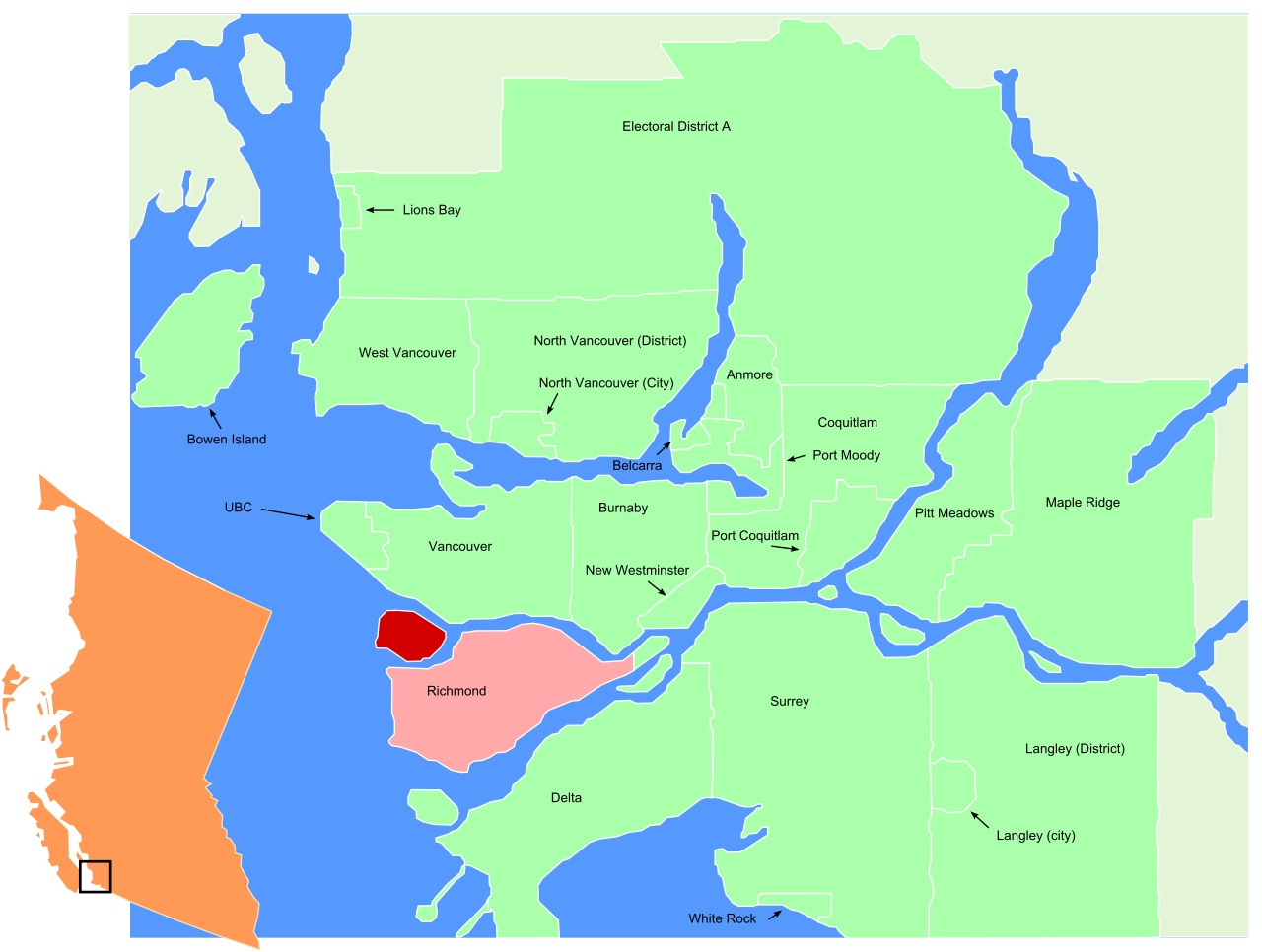Let's talk about links between the housing shortage and anti-Asian hatred
Charlie Smith elaborates on some of the reasons why he's hoping to get on the ballot as an independent candidate in Richmond-Bridgeport
Today, I will file my application to Elections B.C. to become an independent candidate in Richmond-Bridgeport. I’ll find out later if it’s accepted. Regardless of the outcome, I will continue blogging until Election Day on issues of importance to residents of Richmond.
Why do I want to run in Richmond-Bridgeport? I feel that this constituency is at the nexus of so many critical issues facing B.C.
First off, it’s ground zero for the backlash against evidence-based responses to the toxic-drug crisis. In the first six months of this year, at least 1,158 British Columbians died as a result of “unregulated drug toxicity”, according to the B.C. government.
A Conservative incumbent running in Richmond-Bridgeport, Teresa Wat, has been one of her party’s most vocal advocates of escalating a costly, ineffective, and deadly War on Drugs. I believe that if her proposed policies are adopted, the death toll will rise. It will also divert funds from other important areas, such as education and transportation, which are so important to Richmond residents.
The B.C. NDP government has been too gutless to embrace evidence-based measures to seriously reduce the carnage from a toxic drug supply. The status quo is costing lives, draining healthcare resources, and placing enormous stress on emergency responders.
Someone needs to stand up and say that the emperor has no clothes when it comes to compulsory treatment for drug users. Voters should demand that both major parties show evidence that it will work before embarking on this expensive and possibly life-threatening adventure into the unknown.
Earlier this year, Michelle Obama commanded Democratic Party supporters to “Do something!” My version of that in B.C. is to run for public office so I can raise this issue on behalf of families who’ve lost loved ones due to the absence of evidence-based policies.
Addressing the housing shortage
Richmond-Bridgeport also offers opportunities to address the housing shortage.
Scotiabank has done some impressive research documenting our country’s dismal record. In 2021, the bank reported that Canada has the lowest number of housing units per 1,000 residents of any G7 country.
“Over 10% of Canadian households (or 1.5 mn) were in ‘core housing need’ according to the 2021 census,” the bank stated in 2023. “By definition, they have nowhere else to go in the marketplace. Another near-quarter of a million Canadians are homeless.”
Social housing in Canada represents just 3.5 percent of total housing stock. People are on waiting lists for years.
Here’s the kicker: doubling social housing stock would just bring Canada to the peer average among the 38 nations in the Paris-based Organisation for Economic Co-operation and Development. Our record is that bad!
Yet in spite of these appalling statistics, the B.C. NDP halted B.C. Housing’s rezoning application for a 90-unit supportive housing unit in Richmond-Bridgeport at the corner of Cambie and Sexsmith roads.
Meanwhile, Richmond-Bridgeport includes Sea Island, which includes three Canada Line stations. The population of Sea Island in the 2021 census was 820, up from 810 in the previous census. There is an opportunity to build more housing, including social housing, on Sea Island.
However, Richmond city council opposes densification in Burkeville, which is home to most of Sea Island’s paltry residential population. Shame on them.

Conservatives want to repeal Bill 44
I believe that Housing Minister Ravi Kahlon understands how Canada’s housing shortage is undermining economic development. I think he appreciates how this is fueling political extremism and elevating the risk of racial scapegoating and anti-Asian hatred. This may explain his hardline approach to short-term rentals and why he introduced Bill 44 to override municipal governments’ anti-housing policies.
The B.C. Conservatives have claimed that they will “tackle the bottlenecks that delay housing and drive-up [sic] costs” and “end the era of multi-year permit delay”.
Yet at the same time, the B.C. Conservatives plan to repeal Bill 44, which includes many benefits for tenants facing eviction as a result of building demolitions. Leader John Rustad has also promised to amend Bill 47, which sets provincial density regulations near rapid-transit stations.
“Local government needs the flexibility to plan in the way that works best for their communities,” the Conservatives say in their news release. “We will work with cities, not against them, to build the housing BC needs.”
Yet it’s our system of municipal government—which rewards home-owning NIMBYs and punishes people, including newcomers, who don’t own homes—that put us in this situation in the first place. Some of those newcomers are immigrants; others come from different provinces and territoriess.
The shortage of homes drives up the cost of ownership and renting. That, in turn, leads some people to scapegoat others on the basis of racial and national origin. It’s avoidable with decent policies, such as Housing Minister Kahlon’s legislation. Let’s all take one step toward reducing anti-Asian hatred by supporting Bill 44!
If some folks take exception to that statement, I can take the heat. Bring it on.
Keep in mind that Teresa Wat wants to trust local politicians who oppose densification on Sea Island, which is home to three Canada Line stations. Burkeville is also a relatively short cycling distance from a fourth Canada Line station in Richmond.
If Wat becomes a member of the next provincial cabinet, I don’t believe that Richmond-Bridgeport will play its rightful role in addressing this housing shortage.
In conclusion…
Feminist writer Rita Mae Brown—and not Albert Einstein—came up with this phrase: “Insanity is doing the same thing over and over again and expecting different results.”
It sums up the Conservatives’ willingness to trust municipal governments to address Canada’s dreadful housing shortage.
I’ll have more to say about other public issues during the campaign, including arts policy, municipal energy generation, and COVID-19.
Regardless of whether you support my effort to get on the ballot in Richmond-Bridgeport, I hope you’ll look at the platforms of all the independent candidates in Richmond before voting.
It doesn’t need to be a two-horse race if both horses are hobbled by policies more suited to the 20th rather than the 21st century.





